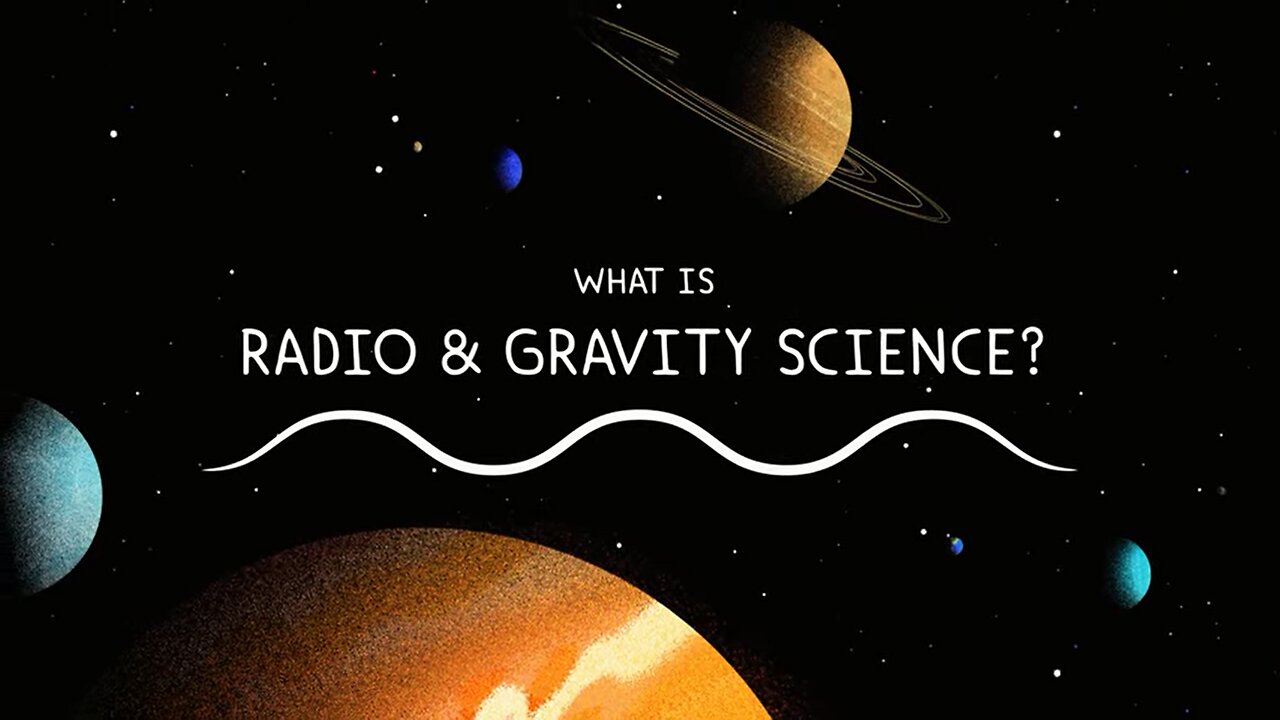Premium Only Content

How NASA Uses Gravity and Radio Waves to Study Planets and Moons
The Deep Space Network, NASA’s international collection of giant radio antennas used to communicate with spacecraft at the Moon and beyond, helps scientists and engineers use gravity and radio science experiments to learn more about our planetary neighborhood.
After reaching a spacecraft reaches its destination, it uses radio antennas to communicate with the Deep Space Network, which in turn transmits radio signals back to the spacecraft. Every spacecraft travels in a predetermined path emitting radio signals as it orbits around its target. Scientists and engineers can infer the spacecraft's location and how fast it's going by measuring changes in the spacecraft's radio signal frequency. This is made possible by the Doppler effect, the same phenomenon that causes a siren to sound different as it travels towards and away from you.
The Doppler phenomenon is observed here when the spacecraft and the Deep Space Network antenna move in relation to each other. Differences between the frequency of radio signals sent by the spacecraft as it orbits and signals received on Earth give us details about the gravitational field of a planetary body. For example, if the gravity is slightly stronger, the spacecraft will accelerate slightly more. If gravity is slightly weaker, the spacecraft will accelerate slightly less. By developing a model of the planetary body's gravitational field, which can be mapped as a gravitational shape, scientists and researchers can deduce information about its internal structure.
The Deep Space Network was developed by and is managed by NASA’s Jet Propulsion Laboratory (JPL) in Southern California. The antennas of the Deep Space Network are the indispensable link to robotic explorers venturing beyond Earth. They provide the crucial connection for commanding our spacecraft and receiving never-before-seen images and scientific information on Earth, propelling our understanding of the universe, our solar system and ultimately, our place within it.
JPL manages the Deep Space Network for the Space Communications and Navigation (SCaN) Program, based at NASA Headquarters within the Space Operations Mission Directorate.
Learn more about the DSN at go.nasa.gov/about-dsn
Credit: NASA/JPL-Caltech
-
 35:08
35:08
Colion Noir
12 hours agoA Bear, an AR-15, and a Home Invasion
39.1K7 -
 3:05:55
3:05:55
TimcastIRL
8 hours agoJimmy Kimmel Refuses To Apologize Over Charlie Kirk Comments, Blames Gun Violence | Timcast IRL
200K172 -
 2:44:24
2:44:24
Laura Loomer
11 hours agoEP144: Trump Cracks Down On Radical Left Terror Cells
56.5K26 -
 4:47:56
4:47:56
Drew Hernandez
13 hours agoLEFTISTS UNITE TO DEFEND KIMMEL & ANTIFA TO BE DESIGNATED TERRORISTS BY TRUMP
51.7K18 -
 1:12:32
1:12:32
The Charlie Kirk Show
9 hours agoTPUSA AT CSU CANDLELIGHT VIGIL
109K61 -
 6:53:45
6:53:45
Akademiks
11 hours agoCardi B is Pregnant! WERE IS WHAM????? Charlie Kirk fallout. Bro did D4VID MURK A 16 YR OLD GIRL?
88.1K7 -
 2:26:15
2:26:15
Barry Cunningham
10 hours agoPRESIDENT TRUMP HAS 2 INTERVIEWS | AND MORE PROOF THE GAME HAS CHANGED!
149K96 -
 1:20:27
1:20:27
Glenn Greenwald
11 hours agoLee Fang Answers Your Questions on Charlie Kirk Assassination Fallout; Hate Speech Crackdowns, and More; Plus: "Why Superhuman AI Would Kill Us All" With Author Nate Soares | SYSTEM UPDATE #518
129K35 -
 1:03:06
1:03:06
BonginoReport
12 hours agoLyin’ Jimmy Kimmel Faces The Music - Nightly Scroll w/ Hayley Caronia (Ep.137)
177K70 -
 55:40
55:40
Donald Trump Jr.
15 hours agoThe Warrior Ethos & America's Mission, Interview with Harpoon Ventures Founder Larsen Jensen | Triggered Ep275
109K56